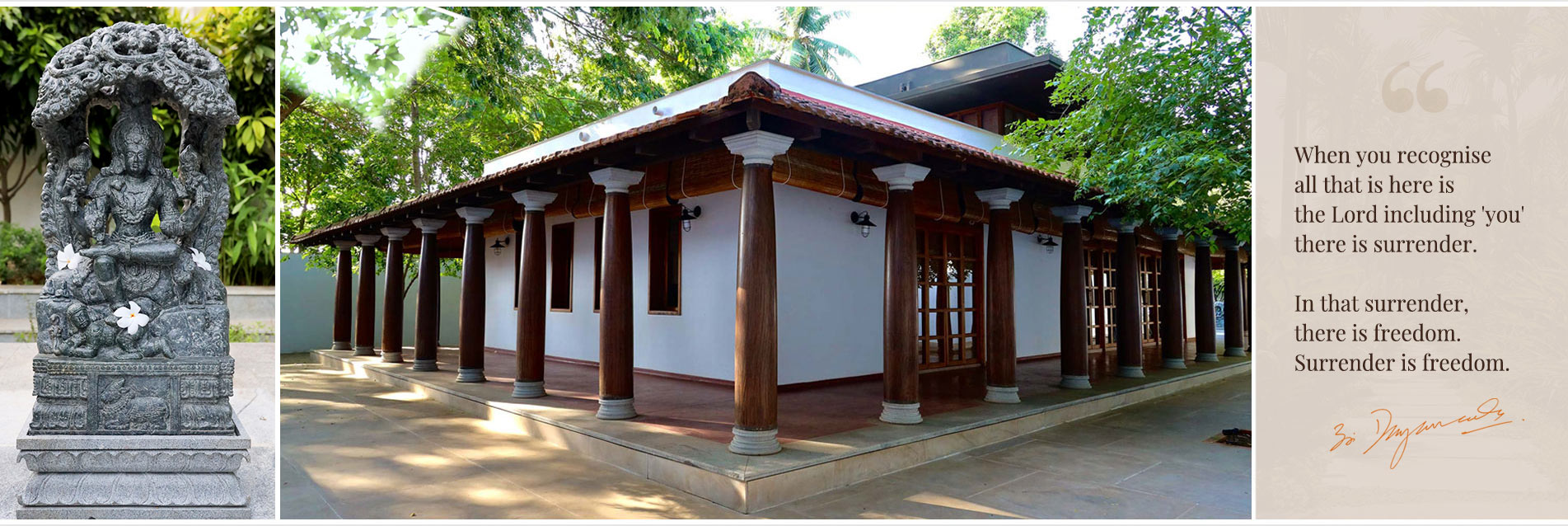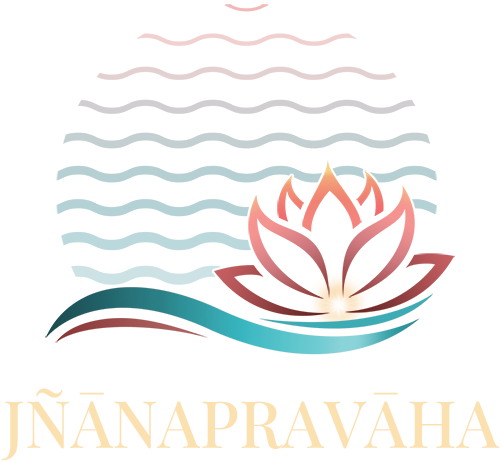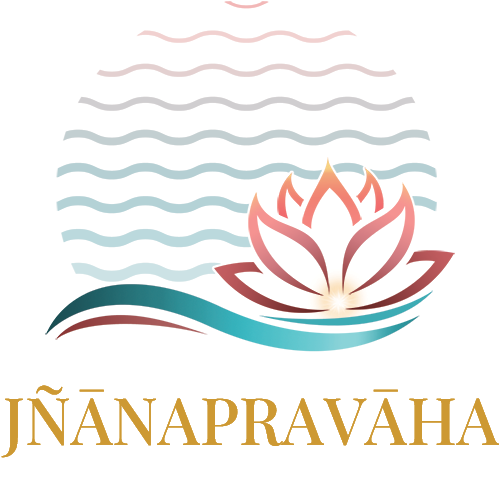
- Home
- »
- Visit Jnanapravaha » Vedanta Study
Vedanta Study
Anyone, student or otherwise, will expeditiously assimilate the initial phases of Vedanta learning by engaging in a series of books known as, the very aptly titled, ‘Moments with oneself’, while concurrently following the audio-visual material of Pujya Swamiji’s Public talks and lectures. This preliminary learning will aid the student in gaining a relative equipoise while living in the world and engaging in various activities and duties, by preparing the intellect, the instrument to know, for the loftier realms of Vedanta knowledge.
This process of systematic study may eventually lead to the larger, more advanced texts, such as Bhagavad Gita, Upanishads and finally, the Brahmasutras. These are collectively known as the ‘Prasthanatrayee’, the authoritative, canonical texts of Vedanta shastra. Jnanapravaha notably provides opportunities for the study and research into the latter texts for the more equipped student.
In the process of entry into and assimilation of the extensive knowledge given in the Prasthanatrayee, another set of books and audio-visuals in Jnanapravaha become essential aids for the seeker – the Prakarana granthas or introductory, topical treatises dealing with various concepts in Vedanta. Relatively smaller books, they equip the student with all the technical savvy in Vedanta nomenclature and methodologies of unfoldment, before entry into Upanishad study.
In the process of entry into and assimilation of the extensive knowledge given in the Prasthanatrayee, another set of books and audio-visuals in Jnanapravaha become essential aids for the seeker – the Prakarana granthas or introductory, topical treatises dealing with various concepts in Vedanta. Relatively smaller books, they equip the student with all the technical savvy in Vedanta nomenclature and methodologies of unfoldment, before entry into upanishad study.
The equivalent of monographs in English, many of Pujya Swamji’s expositions of the prakrana granthas in talks and texts are readily available at Jnanapravaha, and so thoroughly clarified, that evena layman can comprehend the intricacies surrounding core themes of Vedanta. Pujya Swamiji beautifully strings together certain terminologies intrinsic to Vedanta study in texts such as, Tattvabodha, Sadhana Pancakam, Drik Drishya Viveka and many more.
Finally, for the ‘post-graduates’ of Vedanta shastra, Jnanapravaha further offers the complete set of talks given by Pujya Swamji during six long-term Gurukula courses! These cover all the texts mentioned above and many more, conferring unique, profoundly cogent insights into oneself the more one listens and delves into the magic of Vedanta shastra, as unfolded by the Teacher of Teachers, Pujya Sri Swami Dayananda Saraswati.
Anyone, student or otherwise, will expeditiously assimilate the initial phases of Vedanta learning by engaging in a series of books known as, the very aptly titled, ‘Moments with oneself’, while concurrently following the audio-visual material of Pujya Swamiji’s Public talks and lectures. This preliminary learning will aid the student in gaining a relative equipoise while living in the world and engaging in various activities and duties, by preparing the intellect, the instrument to know, for the loftier realms of Vedanta knowledge.
This process of systematic study may eventually lead to the larger, more advanced texts, such as Bhagavad Gita, Upanishads and finally, the Brahmasutras. These are collectively known as the ‘Prasthanatrayee’, the authoritative, canonical texts of Vedanta shastra. Jnanapravaha notably provides opportunities for the study and research into the latter texts for the more equipped student.
In the process of entry into and assimilation of the extensive knowledge given in the Prasthanatrayee, another set of books and audio-visuals in Jnanapravaha become essential aids for the seeker – the Prakarana granthas or introductory, topical treatises dealing with various concepts in Vedanta. Relatively smaller books, they equip the student with all the technical savvy in Vedanta nomenclature and methodologies of unfoldment, before entry into Upanishad study.
In the process of entry into and assimilation of the extensive knowledge given in the Prasthanatrayee, another set of books and audio-visuals in Jnanapravaha become essential aids for the seeker – the Prakarana granthas or introductory, topical treatises dealing with various concepts in Vedanta. Relatively smaller books, they equip the student with all the technical savvy in Vedanta nomenclature and methodologies of unfoldment, before entry into upanishad study.
The equivalent of monographs in English, many of Pujya Swamji’s expositions of the prakrana granthas in talks and texts are readily available at Jnanapravaha, and so thoroughly clarified, that evena layman can comprehend the intricacies surrounding core themes of Vedanta. Pujya Swamiji beautifully strings together certain terminologies intrinsic to Vedanta study in texts such as, Tattvabodha, Sadhana Pancakam, Drik Drishya Viveka and many more.
Finally, for the ‘post-graduates’ of Vedanta shastra, Jnanapravaha further offers the complete set of talks given by Pujya Swamji during six long-term Gurukula courses! These cover all the texts mentioned above and many more, conferring unique, profoundly cogent insights into oneself the more one listens and delves into the magic of Vedanta shastra, as unfolded by the Teacher of Teachers, Pujya Sri Swami Dayananda Saraswati.

Read More





